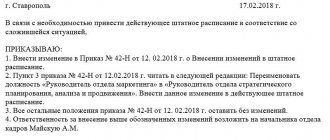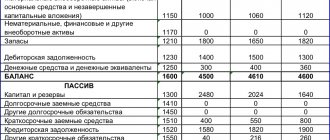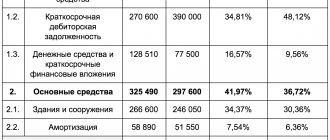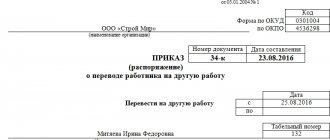In what cases is the document used?
The practice of banning smoking in enterprises is widespread today. This is due to the fact that company management pays great attention to protecting the health of employees and creating safe working conditions.
In addition, the introduction of taboos and restrictions on smoking is also influenced by legislative norms, which require a number of organizations to equip special premises for people who like to smoke, or even a complete ban on smoking.
In particular, smoking is prohibited in educational and medical institutions, as well as government and budgetary structures - smoking is prohibited here not only inside buildings, but also within the surrounding areas.
The law provides for an administrative fine for smoking.
Separately, it should be noted that if a company does not own the office (production workshop, warehouse, etc.) in which it operates, but only rents square meters, then it cannot influence the standards regarding smoking adopted here. If you want to organize a “smoking room,” you will need to contact the owner of the premises.
Motives for creating an order
Rationale and basis are the two pillars on which this document rests and it is on them that the author of the order should rely.
Justification is an objective reason for creating a document; it is written after the words “In connection with...”. The basis is any specific document or legislative normative act, to which a direct reference is given in the order. In this case, the basis can be considered Federal Law No. 15-FZ “On protecting the health of citizens from the effects of environmental tobacco smoke and the consequences of tobacco consumption.”
Features of the form design
If you are entrusted with the responsibility of drawing up an order banning smoking in an organization, we recommend that you familiarize yourself with our advice and pay attention to the sample document. First of all, let's give some general information.
The smoking ban order, like any other administrative act, does not have a standard form, so it can be written in any form or, if the company has a developed document template, according to its type. Both ordinary sheets of any convenient format (generally accepted - A4) and company letterhead are suitable for issuing orders. We accept printed and handwritten text (in the second case, it is important that there are no blots, errors or corrections).
When forming an order, only one important criterion should be met - it must be certified by the original signature of the director of the company (since orders are always written on his behalf) or an employee who is authorized in the prescribed manner to act on behalf of the director.
It is not necessary to stamp the order form - there is a need for this only when the norm for certifying the organization’s internal documents using various types of cliches is enshrined in its local legal acts.
The order is always generated in a single original copy , and if it needs to be duplicated, certified copies are made. Information about the document is entered into the administrative documentation journal.
Responsibility of employer and employee
Liability for violation of legal requirements regarding the use of tobacco products is regulated by the Administrative Code (Article 6.24). For smokers, it provides the following penalties:
- for smoking in an unauthorized place – 500 – 1,500 rubles;
- for smoking on the playground - from 2,000 to 3,000 rubles;
- if persons under the age of majority are involved in the smoking process - from 1,000 to 2,000 rubles;
- if a child starts smoking on the initiative of the parents, they will have to pay from 2,000 to 3,000 rubles.
Article 6.25 of the Code of Administrative Offenses also provides for punishment for those who are obliged to monitor compliance with legal requirements regarding the use of tobacco products (including for managers of enterprises):
- for failure to comply with the requirement to place special prohibitory signs or for detected violations committed during their placement, the management of the organization will pay a fine of 10,000 - 20,000 rubles, and the organization itself - from 30,000 to 60,000 rubles;
- if the area designated for smoking is not properly equipped, the fine for managers is 20,000 - 30,000 rubles, for legal entities - from 50,000 to 80,000 rubles;
- if there is no supervision over the implementation of the law banning smoking in public places, an individual entrepreneur will pay 30,000 - 40,000 rubles, a legal entity - from 60,000 to 90,000 rubles.
Sample document
When drawing up the text of the order, keep in mind that its structure and content must comply with certain unwritten rules of office work. In the header you need to indicate:
- name of company;
- title and number of the document;
- place (settlement) and date of its compilation;
- justification for creating the order (here you can refer to the protection of employee health).
The following is the main part:
- first of all, this includes the smoking ban itself, as well as the employer’s exact requirements (for example, smoking only in specially designated areas);
- the employees who must make changes to the internal regulatory documents of the company, familiarize other employees with the order, and also produce and place information sheets, plates and signs are indicated;
- Below is the employee responsible for executing the order and the basis for creating this order.
If necessary, the document can be supplemented with other information (about agreeing on common smoking areas with neighboring businesses, introducing disciplinary liability for violating taboos, etc.) - in general, act according to the circumstances.
Smoking at work: rights and obligations of the employee and employer
Smoking is a very common bad habit: people smoke both during leisure and at work. To limit the negative impact of tobacco smoke on non-smoking workers, as well as to eliminate other negative consequences of smoking during the working day, special rules were established by law.
What regulations regulate smoking during working hours? What is the responsibility for violating them?
The right to smoke at work
Federal Law No. 87-FZ of July 10, 2001 “On Restricting Tobacco Smoking” (hereinafter referred to as Federal Law No. 87-FZ ) defines the legal basis for limiting tobacco smoking in order to reduce morbidity among the population. Smoking tobacco directly refers to inhaling the smoke of smoldering tobacco products. Ambient tobacco smoke is defined as tobacco smoke contained in the atmospheric air of indoor spaces in which tobacco is smoked.
For your information:
Tobacco products are products for smoking, chewing or snorting, packaged in consumer packaging, including filter cigarettes, non-filter cigarettes, cigarettes, cigars, cigarillos, pipe tobacco, smoking tobacco, shag (smoking nibs).
In accordance with Art. 6 of Federal Law No. 87-FZ , in order to reduce the harmful effects of tobacco smoke, is prohibited in workplaces , in urban and suburban transport, on air transport with a flight duration of less than three hours, indoor sports facilities, healthcare organizations, cultural organizations, in territories and in the premises of educational organizations, in premises occupied by government bodies, with the exception of smoking tobacco in specially designated places.
For your information:
In accordance with Art. 209 of the Labor Code of the Russian Federation, a workplace is understood as a place where an employee must be or where he needs to arrive in connection with his work and which is directly or indirectly under the control of the employer.
At the same time, in paragraph 2 of Art. 6 of Federal Law No. 87-FZ, the employer is obliged to equip specially designated places for smoking tobacco.
The question of whether an employer can completely ban smoking at work is controversial. Some experts note that such a ban established in a local legal act will be legal. However, in our opinion, the law directly implies the employee’s right to smoke in specially designated places, and the employer is directly obliged to create such places. In addition, the acts discussed below provide for the mandatory creation of smoking areas, which confirms our point of view.
As for the time for smoking, these can be breaks specifically set by the employer for this or any other breaks for rest. Let us remind you that, by virtue of Art. 91 of the Labor Code of the Russian Federation, working time is the time during which an employee, in accordance with the internal labor regulations and the terms of the employment contract, must perform labor duties, as well as other periods of time that, according to the Labor Code of the Russian Federation, other federal laws and regulatory legal acts of the Russian Federation, relate to working hours. Rest time means the time during which an employee is free from performing work duties and which he can use at his own discretion. In accordance with Art. 107 of the Labor Code of the Russian Federation, types of rest time are breaks during the working day (shift), daily (between shifts) rest, weekends (weekly continuous rest), non-working holidays, vacations. There are no special breaks for smoking.
Smoking areas
First of all, you need to refer to fire safety standards. Thus, in paragraph 6 of the Fire Safety Rules (PPB 01-03) , approved by Order of the Ministry of Emergency Situations of the Russian Federation dated June 18, 2003 No. 313 , it is established that at each facility instructions on fire safety measures must be developed for each explosion and fire hazardous area (workshop, workshops, etc.) in accordance with Appendix 1 to this document. According to Appendix 1, instructions on fire safety measures should be developed on the basis of fire safety rules, regulatory, technical, regulatory and other documents containing fire safety requirements, based on the specific fire hazard of buildings, structures, technological processes, technological and production equipment. Instructions on fire safety measures, among other issues, must reflect issues related to smoking areas, the use of open fire and hot work. In addition, the norms of clause 15 of the Fire Safety Rules impose on each organization the obligation, by administrative document, to establish a fire safety regime that corresponds to their fire hazard, including the identification and provision of smoking areas. Thus, fire safety rules impose on the employer the obligation to define in local regulations and specially equip smoking areas.
For your information:
Fire safety rules establish fire safety requirements, mandatory for application and execution, including by organizations, regardless of their organizational and legal forms and forms of ownership, their officials, entrepreneurs without forming a legal entity in order to protect the life or health of citizens, property of individuals or legal entities , state or municipal property, environmental protection.
Also, provisions on smoking areas are contained in the Sanitary and Epidemiological Rules SP 2.2.1.1312‑03 , approved by the Chief State Sanitary Doctor of the Russian Federation on April 22, 2003 No. 88. Among the requirements for administrative and residential buildings and premises is the following: smoking areas are designed during work all groups of production processes and to avoid contact of non-smokers with tobacco smoke are isolated from all sanitary premises.
In addition, there are legal regulations that establish specific requirements for smoking areas. For example, smoking areas should have a good ventilation system so that tobacco smoke does not interfere with other workers doing their jobs. The requirements for such a system are provided for by SNiP 31‑05‑2003. Public buildings for administrative purposes , adopted and put into effect by Decree of the State Construction Committee of the Russian Federation dated June 23, 2003 No. 108 , according to which the volume of external supply air must be at least 10 rpm during working hours (in maintenance mode) and 0.5 rpm h during non-working hours (in idle mode). That is, the ventilation system must provide an air exchange volume of 10 cubic meters. m/h. In accordance with a document such as SP 44.13330.2011. Set of rules. Administrative and domestic buildings. Updated version of SNiP 2.09.04‑87 , approved by Order of the Ministry of Regional Development of the Russian Federation dated December 27, 2010 No. 782 , the air temperature in smoking rooms in the cold season must be at least 16 ° C, and the air exchange rate must be at least 10 per hour. The estimated temperature and humidity during the warm period of the year are not standardized. In addition, it is stipulated that the distance from workplaces in industrial buildings to smoking rooms should be no more than 75 m, for people with disabilities with musculoskeletal disorders and the blind - no more than 60 m, and from workplaces on the territory of the enterprise - no more 150 m. As for the area of smoking rooms in restrooms or recreation rooms, it should be 0.02 square meters. m per person.
Mandatory signs and fire safety signs are defined by GOST R 12.4.026‑2001 , adopted and put into effect by Resolution of the State Standard of the Russian Federation dated September 19, 2001 No. 387‑st . In smoking areas at production facilities there must be a mandatory sign M 15 “Smoking here”. In places where smoking can cause a fire, on the doors and walls of rooms, areas where there are flammable and flammable substances, or in rooms where smoking is prohibited, sign P 01 “No smoking” is placed.
Liability Issues Related to Smoking in the Workplace
Clause 3 of Art. 6 of Federal Law No. 87-FZ establishes that violation of the provisions banning tobacco smoking in the workplace, as well as failure by the employer to fulfill the obligation to create special places for smoking, entails administrative liability in accordance with the law. However, the Code of Administrative Offenses of the Russian Federation does not provide for special measures of liability for these acts.
Some experts believe that an employer, if he violates the rules on special smoking areas, can be held liable under Art. 5.27 “Violation of labor and labor protection legislation” of the Code of Administrative Offenses of the Russian Federation , according to which violation of labor and labor protection legislation entails the imposition of an administrative fine in the amount of:
– for officials – from 1,000 to 5,000 rubles;
– for persons carrying out entrepreneurial activities without forming a legal entity – from 1000 to 5000 rubles. or administrative suspension of activities for up to 90 days;
– for legal entities – from 30,000 to 50,000 rubles. or administrative suspension of activities for up to 90 days.
Violation of labor and labor protection legislation by an official who has previously been subjected to administrative punishment for a similar administrative offense entails disqualification for a period of one to three years.
Failure to comply with the requirements regarding smoking areas provided for by fire safety rules may result in liability under Art. 20.4 “Violation of fire safety requirements” of the Code of Administrative Offenses of the Russian Federation . Thus, for violation of fire safety requirements, a warning or an administrative fine is imposed in the amount of:
– for citizens – from 1,000 to 1,500 rubles;
– for officials – from 6,000 to 15,000 rubles;
– for legal entities – from 150,000 to 200,000 rubles.
In accordance with Art. 6.3 “Violation of legislation in the field of ensuring sanitary and epidemiological welfare of the population and legislation on technical regulation” of the Administrative Code of the Russian Federation, violation of legislation in the field of ensuring sanitary and epidemiological welfare of the population, expressed in violation of current sanitary rules and hygienic standards, requirements of technical regulations, failure to comply with sanitary and hygienic and anti-epidemic measures, entails a warning or the imposition of an administrative fine in the amount of:
– for citizens – from 100 to 500 rubles;
– for officials – from 500 to 1,000 rubles;
– for persons carrying out entrepreneurial activities without forming a legal entity – from 500 to 1000 rubles. or administrative suspension of activities for up to 90 days;
– for legal entities – from 10,000 to 20,000 rubles. or administrative suspension of activities for up to 90 days.
As for the employee, for violating the rules on smoking, namely for smoking outside special places or at unspecified times, he may be subject to disciplinary action by the employer in the prescribed manner. According to Art. 192 of the Labor Code of the Russian Federation for committing a disciplinary offense, that is, for non-fulfillment or improper fulfillment of labor duties assigned to an employee, the employer has the right to apply disciplinary sanctions to him such as a reprimand, reprimand, dismissal on appropriate grounds. In paragraph 35 of the Resolution of the Plenum of the Supreme Court of the Russian Federation dated March 17. 2004 No. 2 “On the application by the courts of the Russian Federation of the Labor Code of the Russian Federation” this definition of a disciplinary act is specified. Thus, failure by an employee to fulfill his or her labor duties without good reason is understood as non-fulfillment or improper fulfillment through the fault of the employee of the assigned labor duties (violation of legal requirements, obligations under an employment contract, internal labor regulations, job descriptions, regulations, orders of the employer, technical rules, etc. . P.). That is, a ban on smoking outside special smoking areas or at inappropriate times should be provided for in the internal labor regulations or other local act. Otherwise, the employee cannot be subject to disciplinary liability.
In conclusion, we note that smoking in the workplace is prohibited by law. In this case, the employer is responsible for creating special smoking areas in accordance with established requirements. The issues of liability for violation of these provisions are not addressed in the current legislation. Thus, there are no special measures of administrative liability; only liability standards for violation of fire safety, sanitary-epidemiological and other legislation can be applied. For violation of the rules on smoking, an employee can only be brought to disciplinary liability in accordance with the norms of the Labor Code of the Russian Federation.
Hello Guest! Offer from "Clerk"
Online professional retraining “Accountant on the simplified tax system” with a diploma for 250 academic hours . Learn everything new to avoid mistakes. Online training for 2 months, the stream starts on March 15.
Sign up







